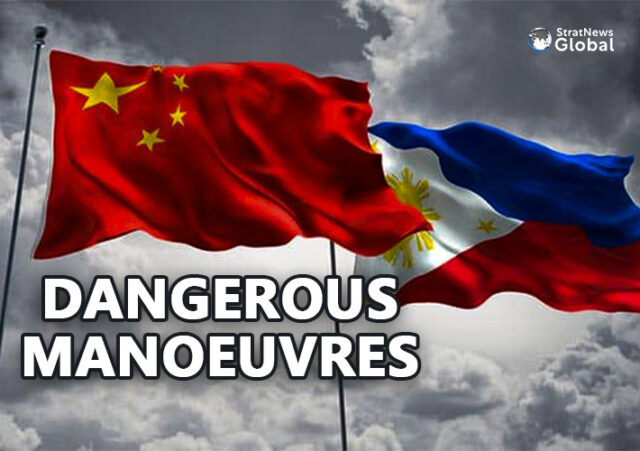On Thursday, the Philippines called in a Chinese diplomat to express their protest against the use of water cannons by Beijing on Filipino ships at a contested shoal in the South China Sea, labelling it as harassment and “dangerous manoeuvres.” The foreign ministry reported that the deputy chief of mission heard the Philippines’ 20th protest of the year, and one of 153 lodged by the current administration, regarding the actions of China’s coast guard and fishing vessels, which Manila alleges are militarised.
“The Philippines protested the harassment, ramming, swarming, shadowing and blocking, dangerous manoeuvres, use of water cannons, and other aggressive actions of China Coast Guard and Chinese maritime militia,” it said in a statement, urging the boats to leave the waters immediately.
The Philippines has accused China of elevating tensions in the South China Sea after its coast guard used a water cannon and damaged two of its vessels while en route to the Scarborough shoal on Tuesday to assist Filipino fishermen.
The shoal, which has been occupied by China for more than a decade, has been a flashpoint between the Philippines and China on and off for years. Tensions have escalated there recently as the Philippines takes a more assertive approach in disputed areas, while strengthening alliances with the United States and Japan.
A prime fishing patch used by several countries and close to major shipping lanes, the shoal falls inside the Philippines’ exclusive economic zone and is claimed by China, though no country has sovereignty over it.
China’s embassy in Manila on Wednesday said the atoll had always been China’s territory and urged the Philippines to cease infringements and provocations and not “challenge China’s resolve to defend our sovereignty”.
China asserts control over a vast majority of the South China Sea, a critical maritime route that facilitates over $3 trillion in ship-borne trade annually. This claim overlaps with territorial assertions made by the Philippines, Vietnam, Indonesia, Malaysia, and Brunei.
An international tribunal in 2016 said China’s expansive claim had no legal basis, a decision Beijing has rejected.
(With Inputs From Reuters)
Research Associate at StratNewsGlobal, A keen observer of #China and Foreign Affairs. Writer, Weibo Trends, Analyst.
Twitter: @resham_sng





